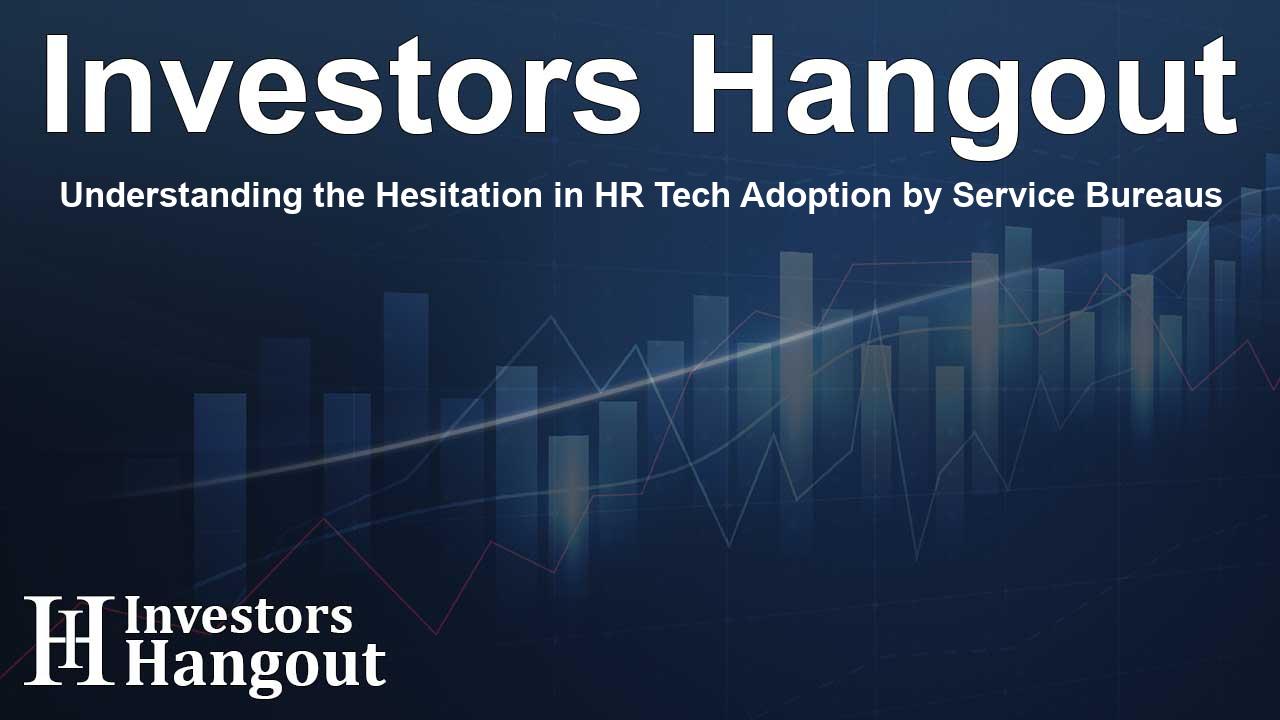Understanding the Hesitation in HR Tech Adoption by Service Bureaus

Understanding the Hesitation in HR Tech Adoption
In today's rapidly evolving workplace, the need for modern human capital management solutions has never been more pressing. Despite this demand, a recent survey highlights a concerning trend among administrative service organizations (ASOs), professional employer organizations (PEOs), and payroll service providers (PSPs). The findings indicate that a significant 80% of these organizations are hesitant to adopt new HR technology solutions that clients actively seek.
Gaps Between Demand and Offerings
The research conducted reveals a striking disconnect between client expectations and the services provided by ASOs, PEOs, and PSPs. While about 54% of these organizations offer basic HR analytics, only a fraction, 32%, extend to predictive analytics and benchmark insights. Such a gap opens avenues for growth, which these service providers can tap into, ensuring they stay relevant in an ever-changing dynamic.
The Current State of HR Technology
Investing in comprehensive analytics capabilities is becoming essential, as HR analytics is viewed as a top priority for investment among HR leaders today. However, many ASOs, PEOs, and PSPs cite various reasons for holding back on new solutions from their HCM vendors. The most prevalent concerns include doubts about the reliability of new products, perceived lack of client demand, and the complexities involved in implementing these technologies.
Differing Perspectives Among ASOs and PEOs
A deeper look into the responses reveals that ASOs are notably more hesitant than PEOs, with 90% of ASOs indicating they will not consider new offerings compared to just 67% of PEOs. Such insights suggest a need for tailored strategies that resonate with the unique characteristics of different organizations.
Addressing Trust and Support Needs
Pragya Gupta, Chief Product and Technology Officer of isolved, emphasizes the critical nature of trust in these partnerships. Many respondents expressed concerns about the level of support from their current HCM technology vendors, with only 14% feeling confident in the assistance they receive. This feeling of uncertainty can impair their willingness to evolve and adopt new technologies.
Strategic Partnerships for Growth
To capitalize on the opportunities in the market, service providers must foster strong partnerships with their vendors characterized by solid support systems and resources. Establishing confidence in new offerings is key to expanding their capabilities and remaining competitive.
Key Findings from the Research
The survey not only sheds light on the hesitations to adopt new technologies but also outlines service bureaus' interests. The top technology offerings that are appealing to these organizations include safety, risk, and compliance tools, alongside AI-based virtual assistants. Conversely, some firms expressed that certain offerings do not resonate with their clients.
Factors Influencing HCM Partner Choices
When considering their current HCM technology partners, service providers primarily evaluate their need to switch, existing vendor relationships, and the potential risk of operational disruption. Gradual rollouts of new technologies, combined with robust training support, are seen as effective strategies to ease the transition.
The Way Forward for ASOs, PEOs, and PSPs
The path forward for service bureaus is to remain vigilant and adaptive to industry changes. The need for new managed or professional services is increasingly crucial, wherein the majority reported having no current plans for expansion. Fostering a supportive community among peers through partnerships can create a prolific environment where service providers flourish.
Enhancing Confidence in Technological Changes
Service bureaus can enhance stakeholder confidence by ensuring their primary HCM partners have strong security measures in place to protect sensitive employee information. Alarmingly, only 30% of surveyed stakeholders expressed confidence in their partner's ability to safeguard data against breaches. Improving these relationships may pave the way for smoother adoption of new technologies.
Frequently Asked Questions
What are the main hesitations of ASOs, PEOs, and PSPs regarding new HR technology?
The primary hesitations include a lack of confidence in early-stage product releases, perceived low client demand, and complexities in implementation processes.
Why is there a gap between client demand and offerings in HR tech?
This gap arises from service providers' concerns over the reliability of new products and a fear of disruption to their existing operations.
How significant is client trust in partnerships with HCM vendors?
Client trust is critical; only 14% of service bureaus expressed high confidence in the support provided by their primary HCM vendors.
What are the top technology offerings service providers are interested in?
The most sought-after technologies include safety, risk, and compliance tools, alongside AI-based virtual assistants.
What should service bureaus focus on to improve their offerings?
They should foster strong partnerships with HCM vendors, ensuring reliable support, adequate resources, and effective training to build trust and facilitate smoother technology integration.
About Investors Hangout
Investors Hangout is a leading online stock forum for financial discussion and learning, offering a wide range of free tools and resources. It draws in traders of all levels, who exchange market knowledge, investigate trading tactics, and keep an eye on industry developments in real time. Featuring financial articles, stock message boards, quotes, charts, company profiles, and live news updates. Through cooperative learning and a wealth of informational resources, it helps users from novices creating their first portfolios to experts honing their techniques. Join Investors Hangout today: https://investorshangout.com/
Disclaimer: The content of this article is solely for general informational purposes only; it does not represent legal, financial, or investment advice. Investors Hangout does not offer financial advice; the author is not a licensed financial advisor. Consult a qualified advisor before making any financial or investment decisions based on this article. The author's interpretation of publicly available data shapes the opinions presented here; as a result, they should not be taken as advice to purchase, sell, or hold any securities mentioned or any other investments. The author does not guarantee the accuracy, completeness, or timeliness of any material, providing it "as is." Information and market conditions may change; past performance is not indicative of future outcomes. If any of the material offered here is inaccurate, please contact us for corrections.